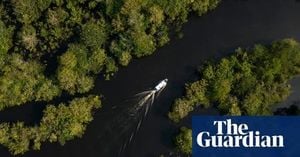A deadly attack rocked the Quetta Railway Station on November 9, as reports emerged of a suicide bombing carried out by the Baloch Liberation Army (BLA). This incident, which struck at the heart of Pakistan's military personnel, has elevated tensions between the BLA and the Pakistani military, signaling potential escalations of violence. The suicide bomber targeted approximately 200 Non-Commissioned Officers (NCOs) from the Pakistan Army who had just completed training and were preparing to board trains. This attack is being described as the most significant hit against military forces to date, with the BLA claiming 31 NCOs were killed and over 60 others injured, though the Pakistani authorities have not released official casualty numbers.
The BLA’s actions are framed within the broader Baloch National Liberation Movement, which has been fighting for greater autonomy and rights for the Baloch people. Following the bombing, the BLA issued pointed threats to the Pakistani military, stating they would respond with even greater force if military operations against Baloch civilians did not cease. The group's spokesperson declared, “Every individual of the Baloch nation is determined to fight for their rights and liberation.”
The extent of the casualties from the Quetta attack has drawn international focus. The BLA not only condemned the military's actions against Balochistan civilians but also appealed to the global community to understand and support their movement. They believe their struggle is not just military but also political, seeking recognition and sovereignty for the Baloch people. “To avoid more bloodshed and bring stability, the Pakistani army should immediately withdraw,” the BLA emphasized.
With the attack occurring near the high-profile Army installation, it marks not only military strikes but also political ramifications. This incident could be interpreted as part of the long-standing conflict between Pakistan's Balochistan province—a resource-rich region—and the central government, which has historically been accused of neglecting the Baloch people's rights and needs.
Historical grievances underpin the conflict: Balochistan has long faced economic and social challenges, often underwritten by military actions aimed at countering separatists. The BLA's claim to be acting on behalf of the oppressed Baloch people resonates deeply within the region. Locally, the sentiment is charged, with many Baloch civilians expressing solidarity with the movements aiming to reclaim Baloch rights and resources.
The Pakistani military, for its part, has vigorously opposed BLA’s claims, often branding them as terrorists. They argue the military interventions are necessary for national integrity and stability. Since the inception of Baloch insurgency decades ago, military operations have intensified, leading to numerous conflicts between the two parties.
Following the Quetta bombing, significant speculation has surrounded what this means for future military operations and civilian security within Balochistan. Counter-terrorism strategies are likely to be reviewed, and increased security measures around military installations seem imminent.
More broadly, the attack raises questions about how effectively the Pakistani government can negotiate tensions within its borders, particularly concerning marginalized communities like the Baloch. The dilemma remains: can military force quell insurgency, or does it merely inflame calls for independence among those seeking it?
The fallout from the Quetta Railway Station tragedy is just beginning to unravel, with increased pressure on the Pakistani government to find a means of engaging the Baloch populace without resorting to violence. The BLA’s firm stance post-attack makes it clear they have no intention of backing down, signaling more turmoil likely lies ahead for both Balochistan and Pakistan as a whole.



